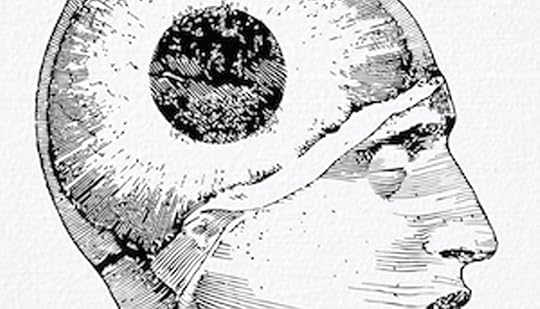You Don’t Need to Be an Atheist to Be a Christian

Central to my recent work is the claim that Christianity – in its subversive, evental heart – expresses the death of the Big Other. More than this, I argue that to “be” a Christian means producing/undergoing/tarrying with this death.
The question then concerns what the term “Big Other” actually means. For instance, is this simply another, more specialised, way of signifying God or theism?
Is the “death of the Big Other” just a cryptic way of saying that the fundamental Christian experience is the embrace of atheism as found in people like Dawkins, Dennett and Harris?
While the term “Big Other” has some crossover with the idea of God as popularly understood, I want to draw out how it differs.
If the death of the Big Other simply meant the end of theistic belief, then Radical Theology would side squarely with the New Atheists. Yet Radical Theology sits just as uncomfortably with New Atheism as it does with contemporary religious belief. Indeed, in its new guise, Radical Theology might prove to be more of a thorn in the side of the cultured despisers of religion than it is a pain in the neck of their disdained target.
While the term “Big Other” does cover much of what goes under the name of religion, it also covers much of what goes under the name of the secular. If it is synonymous with theism, then it is a seemingly surreal form of theism that is alive and well among those who proudly proclaim they don’t believe in God.
So how can someone believe something that they sincerely say they don’t believe? To grapple with this it’s helpful to think about what happens in the psychoanalytic clinic. It is not uncommon in such an environment for someone to be suddenly confronted with a belief that they were not conscious of, or even adamantly denied,
My mum wants to kill me
Men hate me
I am disgusted with myself
In such moments the individual speaks something that has been making itself know in the texture and timbre of their life, without ever being acknowledged. Like the proverbial devil whose greatest trick was to convince people he didn’t exist, such beliefs are all the more powerful in not being acknowledged.
For example a woman might come to see that her distain of a particular colleague is directly related to the way he reminds her of her dead father. It might take years before she realises that she has an unresolved anger toward her father that is negatively affecting her relationship with her colleague.
In situations like this the individual is directly confronted with an unconscious belief manifested in certain behaviours, yet unrecognised at a conscious level.
In Lacanian psychoanalysis the “Big Other” refers to a type of internal judge that begins to form around the age of six months. In general it is not something that one is directly aware of, but it remains influential in much the same way that a person might not believe in ghosts, yet still be scared of them.
Without getting too caught up in the specifics of what the term means in psychoanalysis, its theological significance relates to the, often unconscious, belief in some Thing that will bring wholeness and overcome anxiety. A Thing that is reflected in an infinite variety of concrete things: from having a child or winning a race, to completing a collection of magazines or being invited to the right party.
Like psychoanalysis, the theological “cure” involves draining this Big Other of its power.
This means that the Radical Theology I espouse and develop under the name of pyrotheology is involved with the death of an idol (that object which stands in for the forever elusive, non-existent Thing) that operates in many forms of both theism and atheism.
Occasionally a theorist will use the term “theism” in place of the “Big Other.” For instance, one might hear a (Lacanian) psychoanalyst say that one only needs psychoanalysis insofar as one still believes in God. While some do very closely relate the popular notion of theism (as referring to belief in God) to the Big Other, the latter ultimately relates to the reign of an unconscious Sovereign power that is not necessarily connected to a conscious belief concerning the existence of a First Cause.
My recent trilogy of books (The Divine Magician being the last of the three) is concerned with the theory around this death of the big other as well as the technology concerning how we might enact it. You can also hear me speak a little about this subject here.
For those who wish to delve a little deeper into these difficult waters, my good friend Tad Delay will be publishing an excellent book in the next few months –God is Unconscious – that will serve as a useful map for the perplexed.
Peter Rollins's Blog
- Peter Rollins's profile
- 314 followers



